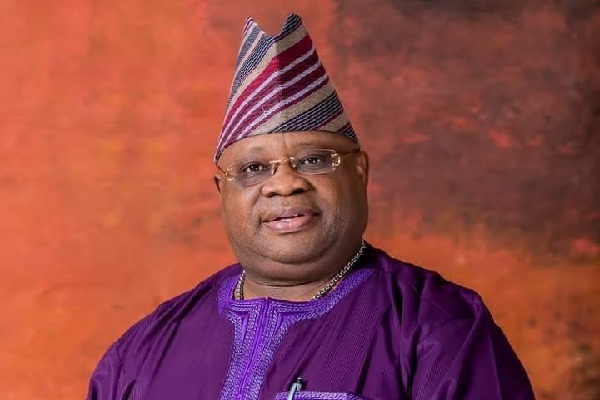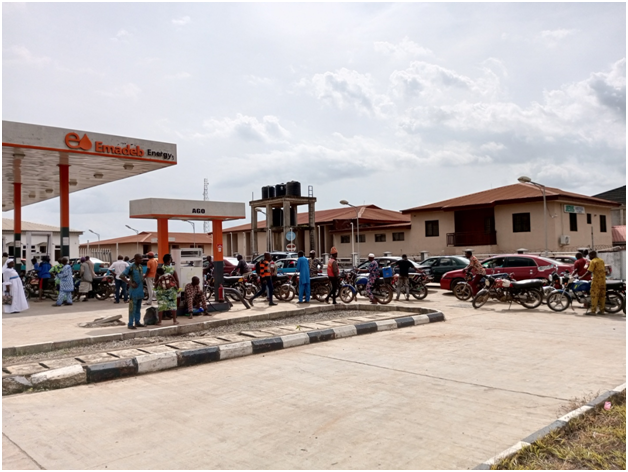Kidnapping for ransom: Analysing the unholy venture
Saheed Ibrahim & Roland Bayode
|
Nigeria used to be one of the most secured and peaceful nations in West Africa. However, the story has changed as contemporary heinous violations such as armed robbery and banditry which endowed the nation has abruptly metamorphosed into high waves of kidnapping, which escalated and led to numerous loss of lives and lamed our socioeconomic recreations.
No doubt, things have finally fallen into improper fractions with Nigeria’s security system as incessant cases of kidnapping keep increasing.
Consequently, kidnapping has now become a lucrative business and the quickest means adopted as a steady structural technique to accumulate wealth by those involved in the hostile conspiracy.
Kidnapping for ransom has now become a commercial scaling enterprise and this pathetic style started in the Northwest states like Kaduna, Katsina, and Zamfara with criminals terrorizing and infiltrating from the forests.
Serious and needed attention was not given to it and now it has spread across all the 36 States. Yet, series of critical strategies adopted by the military and policemen have never stopped the ‘resident evil men’ from their operations.
According to SBM Intelligence Report Nigerians Paid $18.34million Ransom To Kidnappers In 9 Years. SBM also reported that between 2011 and April 2020, Nigerians lost at least $18.34 million to kidnappers as payments were made to secure the release of their loved ones.
There are have been several high-profile cases of kidnappings including the abduction of Justice Abdul Dogo of the Federal High Court, Ondo State, who was kidnapped in Edo State. The Chairman of the Universal Basic Education Commission (UBEC), Dr. Mohammad Abubakar, and his daughter, Yasmin, was one of the numerous victims on the road.
Alhaji Adamu Mohammed, the elder brother to Bauchi State Governor, Bala Mohammed, was released by kidnappers after spending 14 days in captivity with reports suggesting that his release came after the payment of N50million as ransom.
The Afaka kidnapping took place on 11 March 2021, when Gunmen attacked Federal College of Forestry Mechanization, Afaka, Igabi LGA, in Kaduna State led to the abduction of 39 students just weeks after a similar attack in Jangebe, Zamfara State.
The recent one is that of the Greenfield University kidnapping which took place on 20 April 2021, when about 23 students were kidnapped in Kasarami village, Chikun LGA, Kaduna State. Making it the fourth kidnapping from an academic institution in 2021.
The police authorities later substantiated the abduction and asserted that the suspected armed desperado marauder entered the institution in vast numbers, seized the students, killed one member personnel, and placed a demand of ₦800 million ransom.
Reports also revealed that River state had the highest number of kidnap incidents with 120, Kaduna came second with 117 while three other states from the South-South province joined Rivers in the top 10 list… Delta with 96, Bayelsa with 85, and Edo with 55 kidnap incidents.
Many Nigerians have fallen victim to this scandal and have had to pay in millions for freedom and perhaps to get their life saved. However, tension and fear have gripped the mind of citizens as questions have been placed on whether paying the ransom is the best way of curbing the crime rate and kidnapping in our society.
High profile kidnappers like Amisu Bala, aka Wadume and Chukwudi Dumee Onuamadike, popularly known as Evans became millionaire and billionaire respectively unholy from Kidnapping venture in the country.
In the quest to find a lasting solution to this skyrocketing kidnapping for ransom business, the Senate recently proposed a punishment of 15 years imprisonment for anyone who pays or receives ransom for kidnapping but the upper legislative chamber in the country had received several knocks for this proposal.
In view of overwhelmed security architectures and festering kidnapping for ransom business, it is believed that kidnappers become more powerful and demanding as ransoms are being paid.
Intelligent reports show that the ransom were being used to procure sophisticated ammunition, making them more dreaded.
The big question is should Nigerians stop paying ransom?
Reaponding to this, a retired Police Commissioner, Chief Samuel Adetuyi averred that the issue of kidnapping is a two-edged sword.
“Looking at the family of the person being kidnapped, the family will be under the pressure because of their relative that could lose his or her life. Parents might have no option but for the government, it should be the last attempt that has failed.”
He expressed that serious countries do not use negotiation with criminals or kidnappers as first option; they only use it as the last option.
His words, “The moment you negotiate with them and give them their demand, then it becomes a business and people will be encouraged to do more. A person who kidnaps and gets paid opens the gate for others to come up.”
He, therefore, suggests that Government must look at options like a coalition with other countries to help solve this menace.
Mr. Samuel remarked that the U.S. special forces rescued an American citizen who had been kidnapped by armed men in Nigeria as a good message that Nigeria has to demand help.
He said Americans had the capacity and facility to help solve the problem. So there was nothing wrong with our government looking up to people or a country with experience and power to help us solve the problem.
He further added that part of what is contributing to this menace is high rate of unemployment and needs to be well addressed.
“Taking a look at the issue of unemployment in the society, I don’t think most of them are happy with what they are doing, but maybe it’s because they have no choice”, he said.
In his opinion, A former officer with the British intelligence office, Mr. Olumoranti Okunola described the situation Nigerians find themselves as an unfortunate one and that the incompetence on the part of government contributed largely to the menace.
He said that the sincerity of the Government needs to be established and “we shouldn’t be where we are today if the government has been co-active with things especially kidnapping as we know.”
Mr. Okunola noted that kidnappers target school children because they know people would do anything to raise funds, and they do this easily because they know that the government has failed in their primary assignment of providing security for lives and properties.
Although, he stressed that paying the ransom was never the best solution, he stated that anyone in that line would not hesitate to pay ransom to save their loved ones.
He also inferred that “If we are saying no more payment of ransom, then Government must have put some solid structure in place where no kidnappers will be able to operate again.
“I know of places where we have anti-kidnapping agencies but the training of these agencies is not strong enough, they have to train a strong anti-kidnapping squad.
“We have to monitor the activities of the police and there should be a serious penalty for offenders which will serve as a warning to upcoming kidnappers, and the punishment should be strong like life in imprisonment or death penalty.”
He added that the principal thing to do as a nation is for Nigeria to put necessary things in place, such as empowerment of the security agencies; anything contrary to this, ransom payment would continue,
“Kidnapping is a lucrative illegal business in Nigeria”, he concluded.










